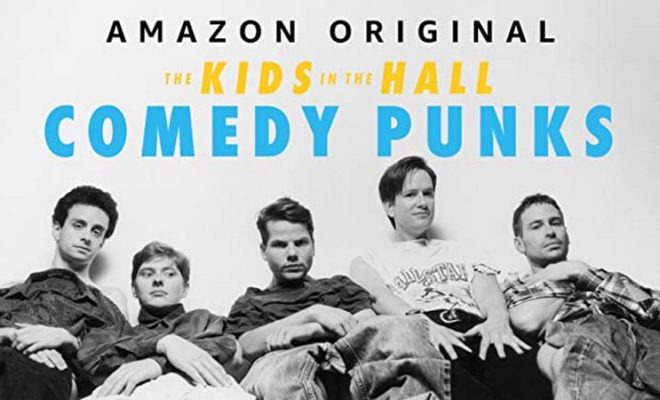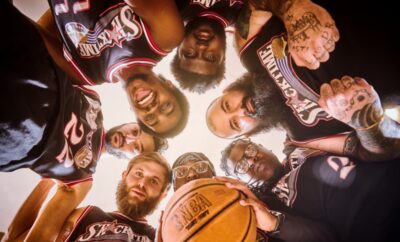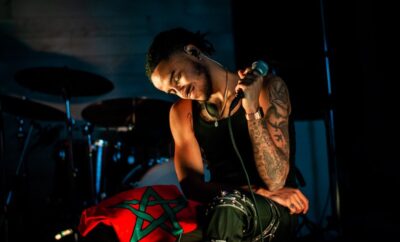
Movie Reviews
The Kids In The Hall: Comedy Punks
By: Jennifer Vintzileos
If you’re like me and had HBO or watched it later syndicated on Comedy Central, you remember those iconic guitar licks even if you didn’t know the name of the band….which is Shadowy Men on a Shadowy Planet. “I’m Crushing Your Head” became a game you played with your friends. Hearing “The Eradicator” made you break out in laughter. And somehow men dressing up as women for entertainment value became normal, even highly comical. And for Dave Foley, Bruce McCulloch, Kevin McDonald, Mark McKinney and Scott Thompson, this was their time to shine and “The Kids In The Hall” was their comedic baby. But how did it all start? Directed by Reg Harkema, The Kids In The Hall: Comedy Punks tells the story of how our favorite rebellious Canadian comedians came to into our homes and gave a humorous voice to a generation unlike any other.
Known for being a Generation-X version of “Saturday Night Live,” it was “The Kids In The Hall” that gave five twenty-somethings a show that a younger generation could relate to. From their beginnings in various comedy troupes around Canada to coming together and selling out shows at The Rivoli in Toronto, Foley, McCulloch, McDonald, McKinney and Thompson not only made us laugh but gave rise to emerging cultural change. Eventually noticed by “Saturday Night Live” creator Lorne Michaels, a television show was eventually created and soon picked up by HBO, premiering on October 24, 1989. While the first two episodes were rough, eventually the show started garnering critical acclaim. It was fresh, outrageous, and pushed the limits to change the face of comedy altogether. Because even years after the original series ended, the jokes still landed, and the laughs continued.
Harkema manages to pay proper homage to our favorite Gen-X comedy troupe in The Kids In The Hall: Comedy Punks. And while the laughs kept coming onscreen, there was more than meets the eye. From Scott Thompson’s openness about his sexuality on camera, Bruce McCullough’s desire to create and direct weird artistic sketches, Dave Foley and Kevin McDonald becoming the Lennon/McCartney-esque sketch-writing team and Mark McKinney wanting to continue as a comedy troupe despite the disintegration of their relationships with one another and the end of the original series in April 1995. They pushed the envelope and weren’t afraid to don a dress or a wig for a sketch, sometimes a Hitler costume. Their ideas got more outlandish, the budget more inflated and they were not afraid to go for the shock factor. And when it came to syndication on Comedy Central, like Stella they got their groove back with comedy tours across the country and a reminder of what these guys do best: live shows.
Just as vital as the fans and their support, I loved the perspective of fellow comedians weighing in on the influence that “The Kids In The Hall” had on their own careers. Mike Myers harbored jealousy for their success but still appreciated that fellow Canadians made their mark. Lewis Black was one of their first fans. Eric McCormack and Jay Baruchel were in awe of the jokes that managed to squeak through onto the screen, especially since today such jokes would be met with more criticism and disgust than laughter.
Despite their differences, it is refreshing to see that “The Kids In The Hall: still hold each one another in high regard. From the rise to the top to the humor to the fights and everything in between, the love remains. I think Scott Thompson truly put it best when he said, “We love each other. That’s the key.”
The Kids In The Hall: Comedy Punks and the latest reboot of “The Kids In The Hall” are now available on Prime Video.





You must be logged in to post a comment Login